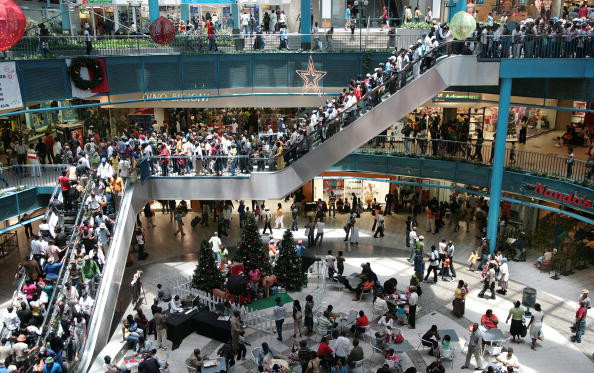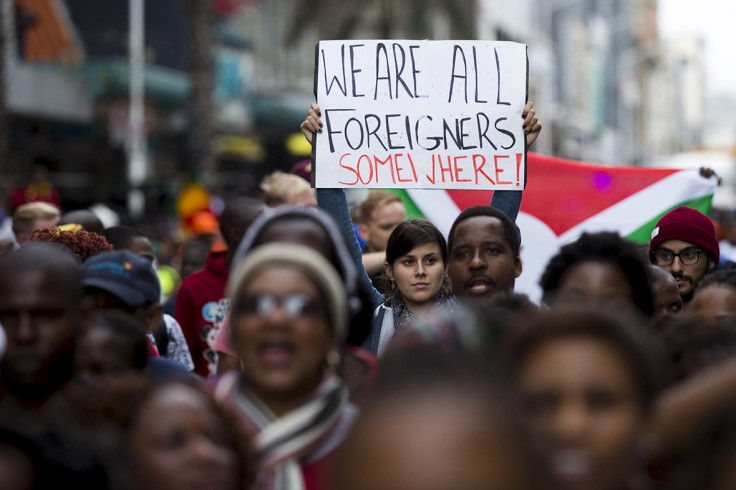South Africa not immune to Isis-style attacks as jihadi terrorism 'is spreading'

South Africa is not immune to Islamic terrorism as radical salafi jihadism has spread across Africa, a security expert has warned. David Otto, CEO of UK-based global security provider TGS Intelligence Consultants, told IBTimes UK the fact that South Africa is a popular touristic destination may increase the chances of terror attacks by Islamist groups such as the Islamic State (Isis/Daesh) and al-Qaeda.
Otto's comment came days after the US warned of possible terror attacks on American facilities or malls in the country – especially in Johannesburg and Cape Town – during Ramadan, Islam's holiest month, which started on 6 June. A similar warning was issued in November 2015.
South African mercenaries and anti-terror fight
"An attack in South Africa won't surprise me. Attacking South African malls and shopping centres will deliver a severe blow to the entire economy, which depends very much on tourism," Otto said. He added that the use of South African mercenaries in the fight against Nigeria's Boko Haram terrorists could be used by the militants – affiliated with IS – as a pretext to carry out retaliatory attacks.
"South Africa is also highly involved in large and small arms transactions, from manufacturing to distribution to countries involved in the war against terror in Africa, the Middle East and beyond," Otto continued. "It is therefore not surprising that an attack by IS or other groups in South Africa will be significant to its 'no talking but active involvement' against global terrorism.
"Despite having a very small percentage of visible Muslim population compared to countries like France, Belgium and the UK, these warnings are natural, if one considers South Africa's involvement in the so-called 'war against terrorism' ".

Xenophobic attacks create vulnerability and enhance recruitment
Recent xenophobic attacks against foreigners create a state of vulnerability that favours recruitment, Otto explained. South Africa has been rocked by anti-foreigner riots that, sometimes, prompt people to flee the country.
In one of the most recent instances of xenophobic attacks, locals looted shops owned by foreigners, prompting people to flee Cape Town on 17 April. It is also believed some protesters prevented residents from going to work and school.
In October 2015, at least 500 people – mainly Zimbabweans, Somalis, Nigerians and Pakistanis – fled their homes in Grahamstown, Eastern Cape after a surge of xenophobic violence in the area.
Earlier in 2015, South Africans targeted foreigners accusing them of stealing jobs and opportunities in Durban, KwaZulu-Natal province. At least five people were killed and thousands displaced , prompting the country to deploy its army to help police curb the violence.
The deployment followed the fatal stabbing of immigrant Emmanuel Sithole. Pictures of him pleading for his life before being killed were published by local newspapers, provoking anger.
"Xenophobia has been highlighted as a big issue that led to serious questions as to how welcoming South Africa has been after apartheid," explained Otto. "These dreadful elements can play well into the hands of jihadists, and used as 'recruitment carrots' for vulnerable young men and women who see themselves as not acceptable into the communities that they live in. It is a country fertile for exploitation by violent extremism by IS or affiliates."
South Africa's response
The South African government said the country was able to ensure the safety of its citizens and tourists. State Security Minister David Mahlobo dismissed the US warning and said the country was not under immediate danger.
"We remain a strong and stable democratic country and there is no immediate danger posed by the alert," he said in a statement.
© Copyright IBTimes 2025. All rights reserved.






















